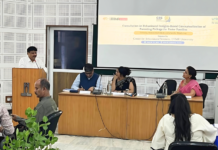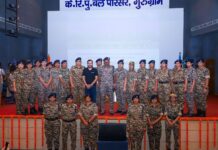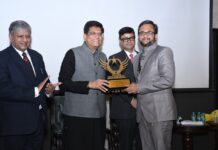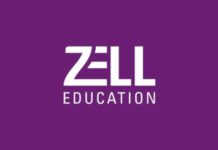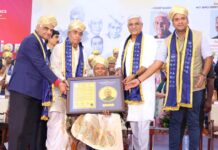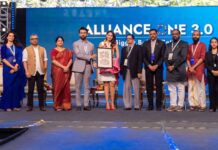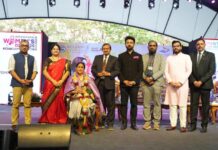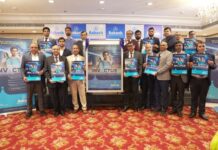The digital event aimed to promote entrepreneurship, innovation, and transformation through new technologies and indigenous resources in the two countries
New Delhi, March 23, 2021: The School of Creativity of Rishihood University (RU), India’s first impact-oriented university with a mission to enable equitable access to education for all, recently hosted a bilateral summit between India and Uzbekistan on Creative Entrepreneurship in association with India Uzbekistan Centre for Entrepreneurship Development, Tashkent. The virtual event aimed to discuss the current entrepreneurial landscape in India and Uzbekistan while exploring the opportunities to promote entrepreneurship, innovation, and transformation in the two countries by tapping into the power of new technologies, indigenous resources, and robust international collaboration.
Moderated by Professor Manika Wali, Dean of School of Creativity, RU, the event saw the participation of esteemed dignitaries and keynote speakers. These include Dr. Sanjeev Chaturvedi, Advisor to the Government of India and Uzbekistan Entrepreneurial Development Centre; Ritu Beri, a leading fashion designer; Dr. Kamlesh Misra, VC, Rishihood University; Sahil Aggarwal, Co-Founder Rishihood University; Anna Boroshok, founder of the Femalepreneurs and Investors Club; His Excellency Manish Prabhat, Ambassador of India to Uzbekistan; and Professor Ravinder Pal Singh, Chief Innovation and Strategy Officer, Rishihood University among others.
Presenting the vision of Rishihood University, Mr. Sahil Aggarwal, Co-Founder, Rishihood University, stressed holistic education as a natural goal of educators, institutions, students, and teachers, “When we say we aspire to provide holistic education, especially within the context of Rishihood University, it should be understood in terms of the outcome that we aim to drive through it. The results are invariably tied to the social impact that students will be equipped to drive on the back of a holistic approach to education. We believe that ideal results can be unlocked by inculcating three key characteristics in students: creativity, entrepreneurship, leadership. By creativity, we mean that students should be able to effectively deal with problems, both existing and emerging. Entrepreneurial bent will help students generate business and social value through their solutions. Finally, the quality of leadership will empower them to think and do more than what they were doing earlier. It is by enabling our students to build and develop these skills that we can say we have provided holistic education to them.”
Discussing creativity as the key to unlock economics Dr. Kamlesh Misra, Vice Chancellor, Rishihood University, said, “The overall contribution of creative enterprises to the GDP at the world level is only about 7-8%. Fortunately, this means that creative industries have a massive space to capture and tremendous scope to contribute to the world economy. Further, creative industries are different from traditional industries that rely on the conventional resource base for their survival, for instance, petroleum that comes from the Middle East. Conventional resources such as capital, fossil fuel, metals and minerals, among others, are concentrated in different parts of the world and this sporadic distribution means that certain industries are primed to thrive in certain environments. On the other hand, creative industries are founded on intellectual property and services, and the one key resource that they need is spread uniformly across the world: creative individuals. Creative industries, therefore, comprise the optimal force that can drive the global economic engine towards a prosperous, progressive, and sustainability-led future.”
The keynote speaker from Belgium Anna Boroshok, founder of the Femalepreneurs and Investors Club, talked about the role of creative entrepreneurship in bolstering women empowerment. “I have worked in large organizations and then moved to smaller agencies. I have realized that I have been in the wrong place for many, many years. I can see within my own community of women that there are many women in the same position. They’re doing the job they’re not good at, that they don’t like, and they don’t know how to make a shift to entrepreneurship. And this is the first thing we need to change on the regulatory level and the level of self-education. The first point of the triangle of creative entrepreneurship is knowing yourself. In the traditional education system, you are not taught who you are and what you like. This is where creativity is suppressed. The second point of the triangle is creative awareness. I have noticed that many businesses forget about the creative aspect while making strategies. This needs to change because the creative component is how you excite the customers about your product. The final point of the creative triangle is risking and testing. People develop a perfect idea for a long period of time, they launch it, and when it doesn’t work, they say, ‘That’s it. I did it wrong.’ But the reality is, you need to test and try so many concepts before you get it working.”
Corporate Comm India (CCI Newswire)



